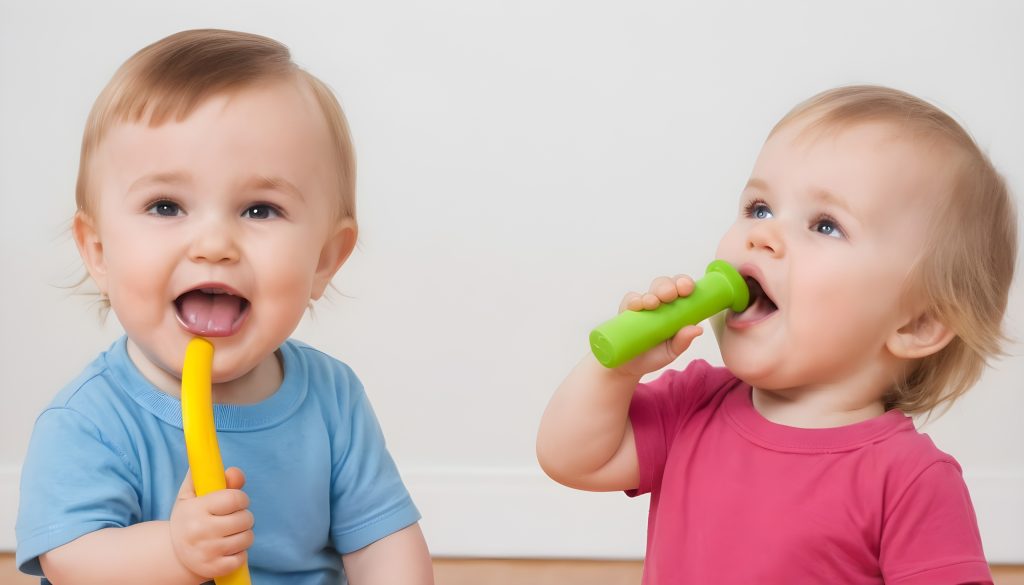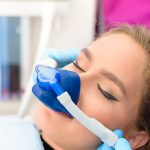Oral Motor Exercises For Toddlers
As toddlers grow and develop, they begin to acquire various skills, including speech and language. Oral motor exercises play a crucial role in helping toddlers build and strengthen the muscles in their mouths that are essential for speech production. By incorporating these exercises into their daily routine, parents can support their child’s speech and language development while also making it a fun and engaging experience.
Conscientious parents always strive to provide the best care for our little ones and ensure they reach their developmental milestones seamlessly. The importance of oral motor skills development within toddlers, cannot be ignored and in this blog post, we will explore five effective and easy-to-implement oral motor exercises that parents can incorporate into their toddlers’ daily routines to enhance their oral motor skills. By engaging in these activities regularly, parents can help their toddlers develop strong oral motor skills that will benefit them in various aspects of their lives.
One of the key benefits of oral motor exercises is the improvement of tongue and lip strength. These exercises help toddlers develop the strength needed to form sounds and words accurately. Additionally, oral motor exercises can enhance coordination and control, enabling toddlers to articulate words more clearly and effectively.
Speech therapists and pediatricians often recommend oral motor exercises for toddlers with speech and language delays or disorders. These exercises can be particularly beneficial for children who have difficulty with articulation, pronunciation, or oral motor coordination. Surprisingly enough, a good family dentist will also be able to give solid advice in this respect.
Below are some fun and engaging oral motor exercises that parents can easily incorporate into their daily routine with their toddlers:
How To Use Oral Motor Exercises With Kids
- Blowing Bubbles:Blowing bubbles is a fun and engaging activity that can help toddlers strengthen their lip and cheek muscles, as well as improve their breath control. To incorporate this exercise into your toddler’s daily routine, simply purchase a bottle of bubbles from your local store and encourage your child to blow bubbles using a wand. This activity not only promotes oral motor development but also enhances hand-eye coordination and encourages social interaction. Additionally, blowing bubbles can be a great way to calm and relax your toddler before bedtime or during stressful situations.
2. Straw Drinking:
Straw drinking is another effective oral motor exercise that can aid in developing your toddler’s lip, tongue, and cheek muscles. To practice this form of oral motor exercises, you need to provide your child with a straw and a cup of water or their favorite beverage. Encourage them to sip from the straw, focusing on using their lips and tongue to create suction. As they become more proficient in this activity, you can introduce thicker liquids such as smoothies or milkshakes to further challenge their oral motor skills. Straw drinking not only promotes oral motor development but also helps toddlers transition to using regular cups independently.
3. Tongue Twisters:
Tongue twisters are a fun and educational way to enhance your toddler’s speech and oral motor skills. By practicing tongue twisters regularly, your child can improve their tongue coordination, speech articulation, and overall mouth movements. Introduce simple and age-appropriate tongue twisters to your toddler, such as “Peter Piper picked a peck of pickled peppers” or “She sells seashells by the seashore.” Encourage them to repeat the tongue twisters slowly and clearly, focusing on pronouncing each word accurately. Tongue twisters not only promote oral motor development but also boost language and cognitive skills in toddlers.
4. Facial Massages:
Facial massages are a soothing and beneficial exercise that can help toddlers relax their facial muscles and improve oral motor coordination. To perform a facial massage on your child, gently massage their cheeks, jawline, and temples using circular motions. You can also use your fingertips to lightly tap on their lips and chin to stimulate their facial muscles. Oral motor exercises in the form of facial massages not only enhance oral motor skills but also promote sensory awareness and relaxation in toddlers. Incorporate facial massages into your toddler’s daily routine as a calming and bonding activity that benefits their overall development.
5. Chewy Snacks:
Chewy snacks are a simple yet effective way to promote oral motor development in toddlers. Offering chewy foods such as fruit leather, dried fruits, or chewy granola bars can help strengthen your child’s jaw muscles and improve their chewing and swallowing abilities. Encourage your toddler to chew their food thoroughly and practice different chewing patterns, such as side-to-side or up-and-down movements. Chewy snacks not only enhance oral motor skills but also promote healthy eating habits and nutrition in toddlers. Be mindful of your child’s individual chewing abilities and introduce chewy snacks gradually to prevent choking hazards.
By consistently incorporating these oral motor exercises into their daily routine, parents can help their toddlers improve their speech and language skills. It is important to remember that each child is unique, and progress may vary from one individual to another. Be patient and supportive as your child works on developing their oral motor skills.
If you have concerns about your child’s speech and language development, don’t hesitate to consult a speech therapist or pediatrician for professional guidance. These experts can provide personalized recommendations and support to help your child reach their full potential in speech and language.

Frequently Asked Questions on Enhancing Oral Motor Skills in Toddlers
- What Specific Activities That Parents Can Do To Help Improve Their Baby’s Oral Motor Skills?
– Encouraging the baby to suck on a pacifier, bottle, or breast to strengthen their oral muscles
– Providing teething toys or textured objects for the baby to explore with their mouth
– Offering a variety of age-appropriate foods to encourage chewing and swallowing
– Singing or making different sounds with the baby to promote oral movements
– Playing games like blowing bubbles or blowing kisses to strengthen lip and tongue muscles
- What Common Oral Motor Goals That Parents And Caregivers Should Aim For In Toddlers?
– Improving lip closure and muscle tone for clear speech
– Enhancing tongue movements for proper articulation of sounds
– Strengthening jaw muscles for chewing and swallowing
– Coordination of oral movements for speech production
– Enhancing oral sensitivity for improved feeding and speech development
- Which speech therapy activities are proven to be effective for toddlers in enhancing their oral motor skills?
– Oral motor games: Play games that involve oral movements, such as imitating animal sounds or blowing out candles
– Sensory activities: Provide different textures for the toddler to explore with their mouth, such as smooth, rough, or soft objects
– Articulation exercises: Practice specific sounds or words that the toddler may have difficulty pronouncing
– Oral motor exercises: Repeat tongue twisters, lip exercises, and facial expressions to improve muscle coordination
– Communication games: Engage in activities that promote listening, imitation, and verbal responses to enhance speech development
- What Are The Best Speech Boosters That Parents Can Implement To Support And Enhance Their Toddler’s Speech Development?
– Reading aloud: Read books with colorful pictures and engaging stories to stimulate language development
– Singing songs: Sing nursery rhymes or children’s songs together to encourage rhythm and speech patterns
– Interactive play: Engage in imaginative play, role-playing, or storytelling to enhance communication skills
– Speech therapy apps: Use interactive apps designed for speech therapy to practice articulation and language skills
– Consistent reinforcement: Praise and encourage the toddler for their communication attempts, even if they are not perfect, to boost confidence and motivation.
By actively participating in your child’s speech development journey through oral motor activities, you can make a meaningful impact on their communication skills and overall well-being. Celebrate small milestones and achievements along the way, and continue to encourage and support your child as they grow and develop. With dedication and consistency, you can help your toddler build the foundational skills needed for clear and effective communication.
Encouraging oral motor therapy in toddlers is crucial for their overall development and future success. By incorporating the five effective and easy-to-implement oral motor exercises discussed in this blog post, parents can help their toddlers strengthen their lip, tongue, and cheek muscles, improve their speech articulation, and enhance their overall mouth coordination.
Through activities such as blowing bubbles, straw drinking, tongue twisters, facial massages, and chewy snacks, parents can empower their toddlers to achieve optimal oral motor skills seamlessly. Always consider making these exercises fun, engaging, and age-appropriate for your child to maximize their developmental benefits. By prioritizing oral motor exercises in your toddler’s daily routine, you are setting them up for success in various aspects of their lives.









